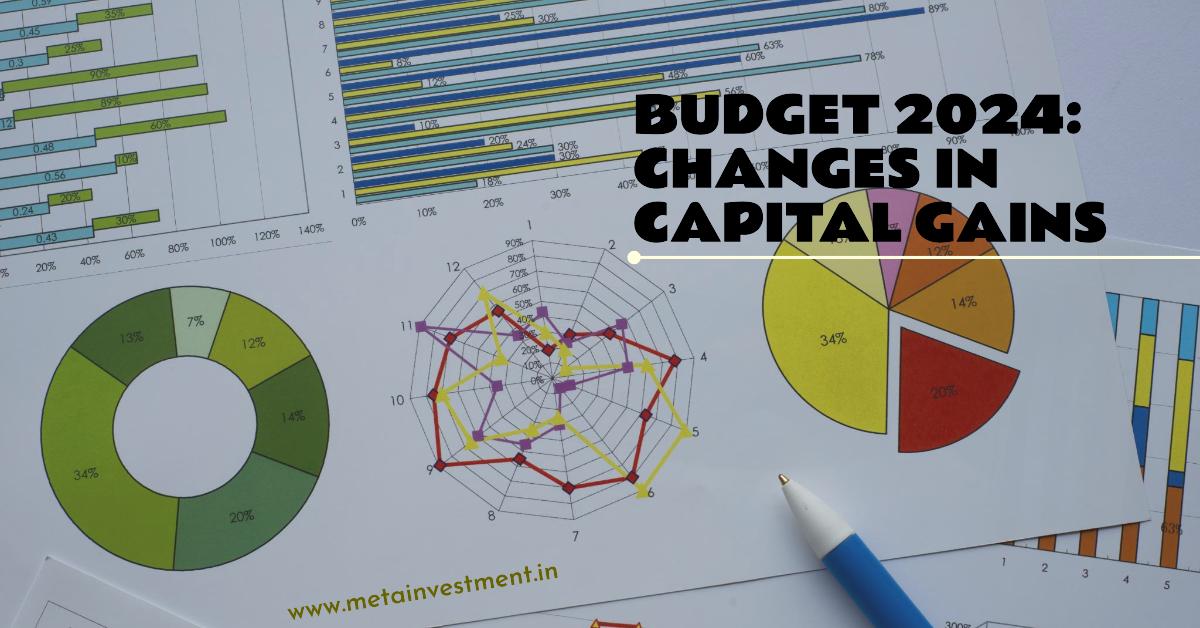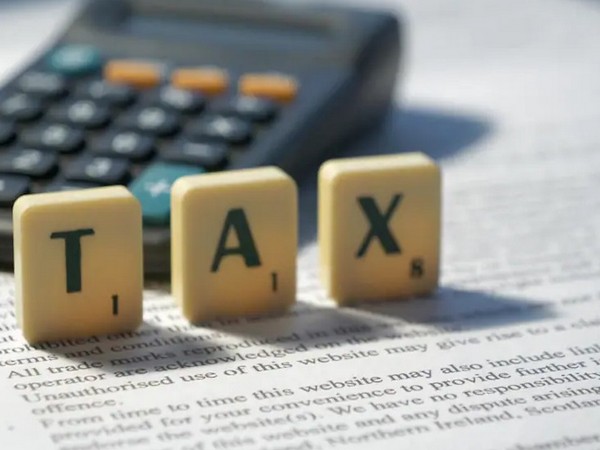Every year we await the Budget with so much expectation.
A Budget is an estimate of revenues and of expenditure. The Finance Minister first sets out all the projects for which money is to be allocated. Every year there are new projects announced. This year the Finance Minister stated that the emphasis is on the poor, women, youth and farmers with particular focus on employment, skilling, MSMEs and the middle class.
The Finance Minister stated that the Government will launch a comprehensive scheme for providing internship opportunities in 500 top companies, to one crore youth, in five years and an internship allowance of Rs 5,000/- per month along with onetime expenses of Rs 6,000/- will be provided. There are also references is to development of infrastructure, industrial parks, cities as growth hubs, housing, land reforms and simplification of the regulations relating to foreign direct investments and overseas investments.
All of these, however, are to be implemented and are plans for the future.
The Finance Minister stated that the net tax receipts are estimated at Rs 25.83 lakh crores. Other receipts would be Rs.6.24 lakh crores. The total expenditure would be Rs.48.21 lakh crores. The fiscal deficit of Rs 16.14 lakh crores is estimated at 4.9% of GDP.
She also stated that the Government will continue efforts to simplify taxes, improve tax payers services, provide tax certainty and reduce litigation while enhancing revenues for funding development of welfare schemes of the Government.
Even though she states that she is simplifying taxes, there are as many as 99 clauses to amend the Income Tax Act and some of these are retrospective.
In 2023 there were 122 clauses in the Finance Bill relating to the Income Tax Act.
Surely the Income Tax Act must hold the world record for the maximum number of clauses that have been made since it was promulgated in 1961!
One major set of changes relates to capital gains. In fact, after the Budget was announced on 23rd July, 2024 there were protests from tax payers all over the country, and the Govt. then was forced to roll back and modify some of the proposed amendments. The amended Finance Bill was then introduced in Parliament. The new position is set out hereunder.
Upto now a long term capital gain on the sale of many capital assets (other than listed shares and Units) was determined by deducting the “indexed cost” from the net selling price.
The Government treated Financial Year 2001-02 as the base year having an index of 100 and every year the index for that year would be announced. In fact for FY 2024-25, the year going on, the index has already been announced at 3.63 times the value as of 1.4.2001.
So, if a person bought a property or gold or silver or unlisted shares etc. before 1.4.2001, then the first aspect was to step up the original cost to the value as on 1.4.2001.
Let us assume that the value of a flat as on 1.4.2001 was Rs.1 crore. The index for FY 2024-25 is 3.63 times that figure.Accordingly the indexed cost would be Rs.3,63,00,000/-.
One set of changes is in relation to the period of holding required for an asset to be treated as a Long Term Capital Asset.
The other set of changes is in relation to the tax rates and the method of calculation.
The position for listed shares and securities has not changed. The period of holding to make it a Long Term Capital Asset would still be 12 months. Accordingly, such an asset held for up to 12 months will be treated as a Short Term Capital Asset and the gain will be taxed as a Short Term Capital Gain.
If the period of holding is more than 12 months, then it will be a Long Term Capital Gain.
For most other assets, such as unlisted shares, Immovable Property, Gold, Silver, goodwill etc. the relevant period of holding now is 24 months. So if such an asset is held for less than 24 months, it will be treated as a Short Term Capital Asset. If it is held for more than 24 months, it will be treated as a Long Term Capital Asset.
There is a 3rd category and that is “Specified Funds” and certain Bonds and Debentures. If these were acquired up to 22.7.2024, then if they are held for more than 3 years, the gain would be treated as a Long Term Capital Gain.
In the event that they are acquired on or after 23rd July 2024, then no matter what the period of holding, the rate of tax would be the normal rate of tax applicable to regular income, such as property income etc. which can go up to 30% + surcharge + cess.
The second set of changes relates to the manner of calculation of tax and the tax rates.
Indexation was to be taken away but now the position is that, for individuals and HUF (but not for firms and companies etc.) the Indexation will be available for Immovable property acquired up to 22.7.2024. In such a case, the Capital Gains will be determined at the time of sale, but it will be the assesse’s choice to:-
(a) compute the Capital Gain after taking into account indexation and then pay tax at 20% + surcharge + cess, or
(b) in the alternative, to not claim indexation and pay tax on the Long Term Capital Gain at 12.5% + surcharge + cess.
In the event that the gain on these assets is a Short Term Capital Gain, then the rate of tax can go up to 30% + surcharge + cess.
In the case of listed securities, indexation has not been available even in the last several years and therefore indexation will not be available hereafter.
The rate of tax on Long Term Capital Gain on listed securities will be 12.5% + surcharge + cess and for Short Term Capital Gain will be 20% + surcharge + cess.
These are general guidelines and there are numerous complicated rules and provisions and many distinctions in different categories and all these must be checked carefully. So, therefore, any calculation should be checked carefully and precisely with proper advice taken.

Image courtesy: Metainvestment
One example of such a distinction is that a Non Resident would not get the benefit of indexation.
This is clearly not simplification and rationalisation!
There have been many other changes. One important one is that “Angel Tax” is being removed. Up to now when a Company issued shares at a premium was amount of the premium is to be justified to the Income-tax department. If the Department felt that the premium was excessive, then they could tax the company. This has resulted in a great amount of litigation especially since the Government has been encouraging start-ups. Such new companies need to have finance. They would begin on the basis of an idea and a small amount of capital and then would raise funds by rounds of financing at a higher and higher premium. This was being questioned by the Income-tax Department. Now the “Angel tax” will no longer apply in the future, but the old litigation will continue.
The Government continues to emphasize the “new regime” of taxation whereby an assesse will not be able to claim reliefs which were earlier given for investment into PPF or LIC (u/s. 80C of the Income-tax Act), the deduction in relation to Savings Bank Interest (u/s. 80TTA) and the deduction in respect of Interest on Fixed Deposit (u/s. 80TTB), Donations to charitable trust u/s. 80G etc. Now the Standard Deduction has been raised from Rs.50,000/- to Rs.75,000 for those who have Income from Salary or pension and who opt for the new regime.
The rate of tax under the new regime is as under:-
On 1st Rs.3,00,000 Nil.
Between Rs.3,00,001/- and Rs.7,00,000/- 5%
Between Rs.7,00,001/- and Rs.10,00,000/- 10%
Between Rs.10,00,001/- and Rs.12,00,000/- 15%
Between Rs.12,00,000/- and Rs.15,00,000/- 20%
Above Rs. 15 lakhs 30%
There is also a rebate u/s. 87A.
Thus, if a person’s total income is up to Rs. 7 lakhs and he has opted for the new regime, he has to pay no Income-tax at all. If the person’s income is, say, Rs. 15 lakhs then he would have to pay Rs.1,40,000/- on the first Rs.15 lakhs + surcharge + cess. The rate of tax on income over Rs. 15 lakhs would be 30% + surcharge + cess.
If a person lets out residential property, for example, on AIR-BNB basis as many people are now doing or if a person has a Paying Guest, then the income from such letting will have to be offered for tax under the head “Income from House Property”. Under this head, a deduction is allowed for Property taxes and for 30% of the net income after deducting Property tax. Several people were offering this income for tax under the head “Income from Other Sources” and claiming substantial deductions in the case of a residential house. This will no longer be permitted.
Buy Back of Shares. Several Companies have been carrying out a Buy-back of shares. When a Company has accumulated enough Reserves and does not require so much money, it would try and release the same to its shareholders by way of a Buy-back of shares. This was essentially because the rate of tax on such buy back was 20% + surcharge @ 12% + cess @ 4% as against the amount of 30% (plus surcharge and cess) on Dividend.
Now this is to be amended w.e.f. 1st October 2024. Thus, if a Company does a buy-back after that date, the entire amount received by the shareholders will be taxed as Dividend .
The second aspect of this is that the cost of the shares would be deemed to be a loss to the shareholder and could be set off against other gains made by the shareholder.
This will effectively mean that Companies will not carry out a buy-back anymore as the tax would be very onerous. It may as well declare a Dividend.

Image courtesy: TheNewIndianExpress
One important feature of the Income-tax Act has been that if a person has any foreign asset, such as a Bank Account or shares etc. etc., then he is required to declare such overseas assets in Schedule FA (standing for “Foreign Assets”) in his Tax Return and if he has foreign income, then he will have to fill in Schedule FSI (which stands for Foreign Source Income). In the event one misses out declaring this, no matter how small the penalty, the penalty is Rs. 10 lakhs per year and there can be several other consequences. Now the Black Money Act is being amended to provide that if a person has Movable Property of up to Rs 20 lakhs and if this is not declared, there will be no penalty under the Black Money Act. However, now penalty is not to be levied if Movable Assets less more than Rs. 20 lakhs are not declared. Immovable Property will have to be declared no matter how small the value, and if it is not declared, a penalty will be levied.
There are several other changes in relation to Reopening of Assessments etc.
Then, there are changes in TDS. If a person is a partner of a firm and draws a salary from the firm or earns Interest from the firm, then this will have to be subject to TDS.
Since there is so much litigation with the Income-tax Department, a Scheme called “Direct Tax Vivad Se Vishwas Scheme” 2024 is being introduced. Under this Scheme assesses can go forward and settle many of their matters which are in litigation.
One other provision relates to reopening. The time for reopening of assessments is now being changed. If the amount of estimated concealment is up to Rs 50 lakhs, the assessments can be reopened within 3 years from the end of the Asst. Year. If the amount of estimated concealment is more than Rs. 50 lakhs then assessment could be reopened in 10 years from the end of the Asst. year. This is now being reduced to 5 years and 3 months from the end of the Asst. Year.
Search and Seizure provisions are also being amended. For a long time there was a “Block Assessment Scheme”. This was then stopped. It is again being reintroduced and now in the event of Search and Seizure, the income of the last 6 years plus the year of the raid will be treated as one block and taxed at 60%. In certain cases, there can also be Interest and penalty.
The Income-tax Act has become extremely complex. The Finance Minister announced that they will work on a new Income-tax Act or a major modification within the next six months. Let us hope this actually happened and that it is truly simple and rational and without unnecessary distinction and areas of litigation!








